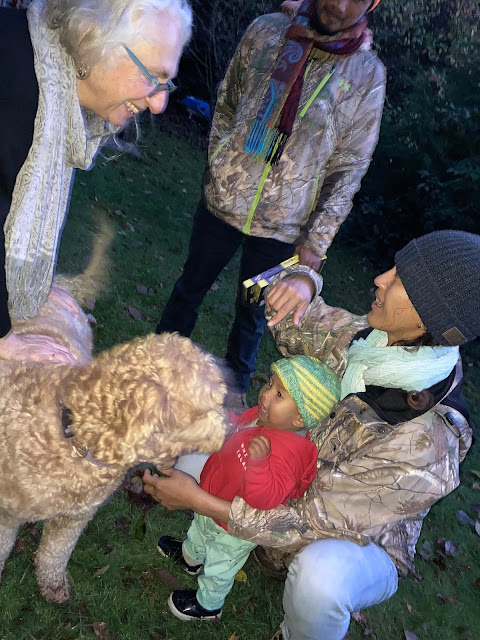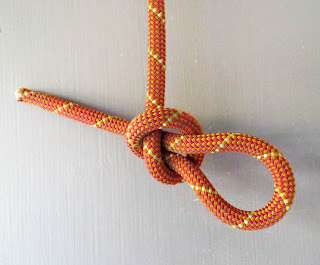Create
"It's easy to give if you get plenty. Not so easy if you no more."
The newest return of the wet, and cold season is here. Here on Ke Kuapa (the wall of a pond) o Maxwelton Creek the season of Lono means the rains fall and the water from the pond rises. We knew this is a watershed area. But the theory of knowing something is only a thought until you are immersed in the theory.- Dr. Larrry Kimura
"uniki. Graduation exercises, as for hula, lua fighting, and other ancient arts (probably related to niki, to tie, as the knowledge was bound to the student)." - Ulukau.org
I listened, then re-listened several more times over the past few days, practicing the art of ho'opili. Pili in Hawaiian, means:
"To cling, stick, adhere, touch, join, adjoin, cleave to, associate with, be with, be close or adjacent; clinging, sticking; close relationship, relative; thing belonging to." Ho'o preceding a word in simplistic terms means to cause the following (word, action). In my oli classes, we are taught to ho'opili as practice with listening carefully and to mimic what we hear.
The practice of listening and re-listening to Tangaro was a kind of eating to become familiar with a theory, opening my universe and all its selves to the philosophy of Hawaii indigenous leadership. Hear this man, this leader, in the telling of his story. Hear it. Listen well. Consider the association with that example. Ho'opili.
Listening over and over, I tune more closely, and catch another's message of ho'omanawanui ... to cause (something) over a large amount of time. Another ho'o word. This time, a word that returns to me from the mouth of my elder cousin. The same cousin who patiently and persistently showed up with sandwiches and thermoses of hot coffee in her red and white VW van. I was a college freshman, eighteen years old maybe. She was there to pick me up to go study. After a lifetime of making babies, and working at record stores, bakeries and at home Cousin Milly went back to college and earned a degree in Hawaiian Studies. She taught the language and culture, though she was not Hawaiian by blood quantum. She was the ancestor who would get me through college and run onto the departing Hawaiian Air Lines flight (way before Home Land Security or Covid) that was taking me away from home for the first time. A married woman at twenty four. With books and one word, Cousin Milly sent me off. The word?
Ho'omanawanui. Patience.
Taupouri Tangaro described the path he has taken, and the relatives and ancestors who consistently 'guide him gently' to take the right steps or correct the step mistaken. He is at his core, a hula dancer. His creative and evolutionary development of a college curricula based on hula designed to foster Hawaiian Indigenous Leadership is a result of long haul investment. Not easy. Not quick.
At one point late in the interview the interviewer asks: "Where is the line(in hula) between sharing too much, and keeping for yourself to malama (care for) and protect?" Tangaro's answer begins with saying, "Larry Kimura was one of my professors at U.H. And he said it: 'When you get plenty you can give. When you no more hard for give.' I teach hula in Japan, but what I teach in Japan is what I create. It's so distant ... Hula the more surface (kind of hula) I can share. Hula the genealogy those I have to keep close to me for a number of years. The hula I create, I can share. They mess up it's between them and me; not me and my ancestors. That's why it's important we create plenty (of dances)."
The light of Ka La, the sun, has puka through the night darkness. The hens are crowing. The frost is visible on the grass covering the pond below. A hot breakfast of toast and eggs has fed us. Pete woke long enough to eat his share.
This story, of recording, and drawing upon the possibilities for a new creation is just as the hen's crow: there is a birth! Distant as I am from the shores of my birth, the passion to create lives in this old woman. I continue to love writing. I work diligently. It does not come easy, I must attend to that flame, and feed it. The obstacles and challenges do force me to draw on those many versions of myself. The navigation of a long-distant voyaging canoe requires many 'experts' with different skills. Not only do we need other bodied people to help, we must know the many personages within us who can be called forward when needed. And equally important, as Tangaro pointed out, sometimes traits within us need to be put into dormancy because they do not serve our community nor ourselves.
Refashioning the dance (the story, the shelter) require a working philosophy of ho'omanawanui. I give thanks, and such aloha to my ancestors for the sandwiches, hot coffee, and offers of hope at key moments in time.
Late tomorrow morning, a different Hawaiian Air Lines flight carries our family from O'ahu to Seattle. Life continues. Refashioning continues. Sharing continues. A new ancestor needs to be sheltered, and kept warm on his journey.
And for those who love the adventure of a criss-crossing story of mythography and genealogy, I have continued with the further tales of Samuel and 'Iliahi. The Resident Magicians is being created now.
That makes more than thirty stories. Like the man said, "It's easy for give if you get plenty. Not so easy if you no more."






😊💛💛💛
ReplyDeleteThanks Satori!!!
Delete